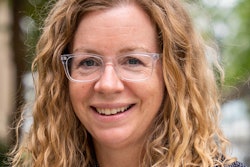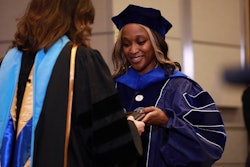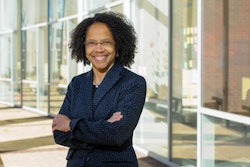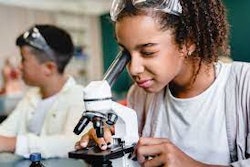The Atlanta University Center Consortium (AUCC), an organization made up of four historically Black colleges and universities (HBCUs), is planning to launch a new institute in an effort to increase the number of engineers from underrepresented communities, using a $1.5 million investment from the A. James & Alice B. Clark Foundation.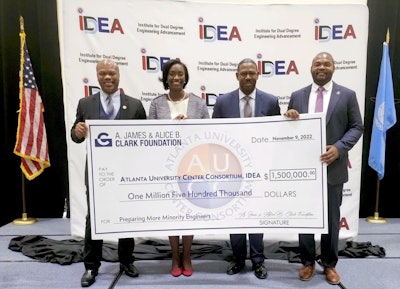 Dr. Christopher Ellis, Natalie Grandison, Dr. Said Sewell, Dr. Johnathan Gaines
Dr. Christopher Ellis, Natalie Grandison, Dr. Said Sewell, Dr. Johnathan Gaines
This Institute for Dual Degree Engineering Advancement (IDEA) will build upon and expand the AUCC’s existing Dual Degree Engineering Program (DDEP) which allows students from AUCC schools to attend their school for three years before transferring to an engineering institution for another two.
"This work seeks to address: the limited number of students going into engineering; the diverse need and the various diverse pipeline opportunities for industry; and how do we begin to help other institutions to build out their interest in the dual-degree engineering ecosystem," said Dr. Said Sewell, director of the Office of Academics, Research, And Student Success at AUCC.
The AUCC – comprised of Clark Atlanta University, Morehouse College, Morehouse School of Medicine, and Spelman College – has maintained a longstanding 53-year agreement with Georgia Institute of Technology for this DDEP. By the end of the five years, the students earn both a degree from their AUCC school and a bachelor’s in engineering from Georgia Tech, Sewell said.
This 3+2 Dual Degree Engineering Program (DDEP) has since expanded to include other top-ranking engineering institutions that students can transfer to: Auburn University, Indiana University-Purdue University Indianapolis, Missouri University of Science & Technology, North Carolina A&T State University, Rensselaer Polytechnic Institute, Rochester Institute of Technology, University of Michigan – Ann Arbor, and University of Notre Dame.
“The funds would be used in three broad ways,” Sewell said. “One, to help extend and expand existing academic and support programs that's currently existing for the DDEP. Two, to begin to expand on new opportunities and new pipelines with that of faculty engagement. So, we'll be able to help faculty and support their research in the area of engineering education, both at our institutions as well as institutions across the country that are interested in this type of research. Lastly, we will begin to share our best practices through a national convening of other private liberal arts HBCUs and Hispanic-serving institutions (HSIs), thus being able to move the needle in the area of engineering, in regards to increasing the number of diverse talents going into the field."
IDEA is meant to be a national hub for collaboration between potentially 250 U.S. DDEP programs.
“We are reaching out to many HBCUs that have interest or who've shown interest for us for the last few years, along with other HSIs that have reached out,” Sewell said. “So we're hoping to build upon that, those names, and those institutions for this overall endeavor."
IDEA will also include a new 4+1 DDEP program, wherein a student can complete their four years at an AUCC school and then get a master's degree from Georgia Tech in engineering, Sewell said.
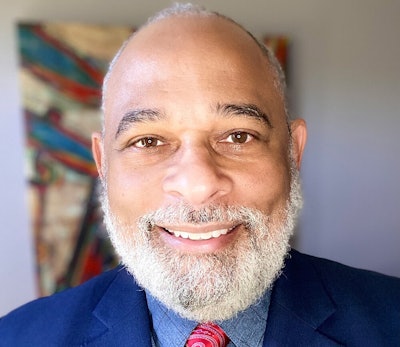 Dr. Michael Hodge
Dr. Michael Hodge
"The business of the Atlanta University Center is to work collaboratively with the member institutions and our surrounding community, as well as provide thought leadership within the higher education ecosystem, particularly as it relates to the HBCU subsystem of higher education,” Hodge said. “And so, the goal here is to create a center that allows us to provide leadership in an area where we've been the progenitors of dual-degree programs. … So we want to begin to duplicate that in a number of ways and to scale our success through developing this institute that will be a center for thought leadership on how to prepare minority groups – African Americans, Hispanic groups, Native American groups – well to become the leaders in engineering that we need in the 21st century."
Natalie Grandison, director of engineering initiatives at the Clark Foundation, said that AUCC’s well-established track record of supporting diverse students and dual-degree programs was partly the motivation for the investment.
"The $1.5M investment will provide resources for the growth in the number of students enrolled in the engineering summer bridge program, support the enhancement of programming and increase scholarships for the Dual-Engineering Degree Program, as well as ensure the recruitment of additional cohorts to the newly launched BS-MS Engineering Degree Program in partnership with Georgia Tech and award funding to faculty for curriculum development,” Grandison said in an email.





